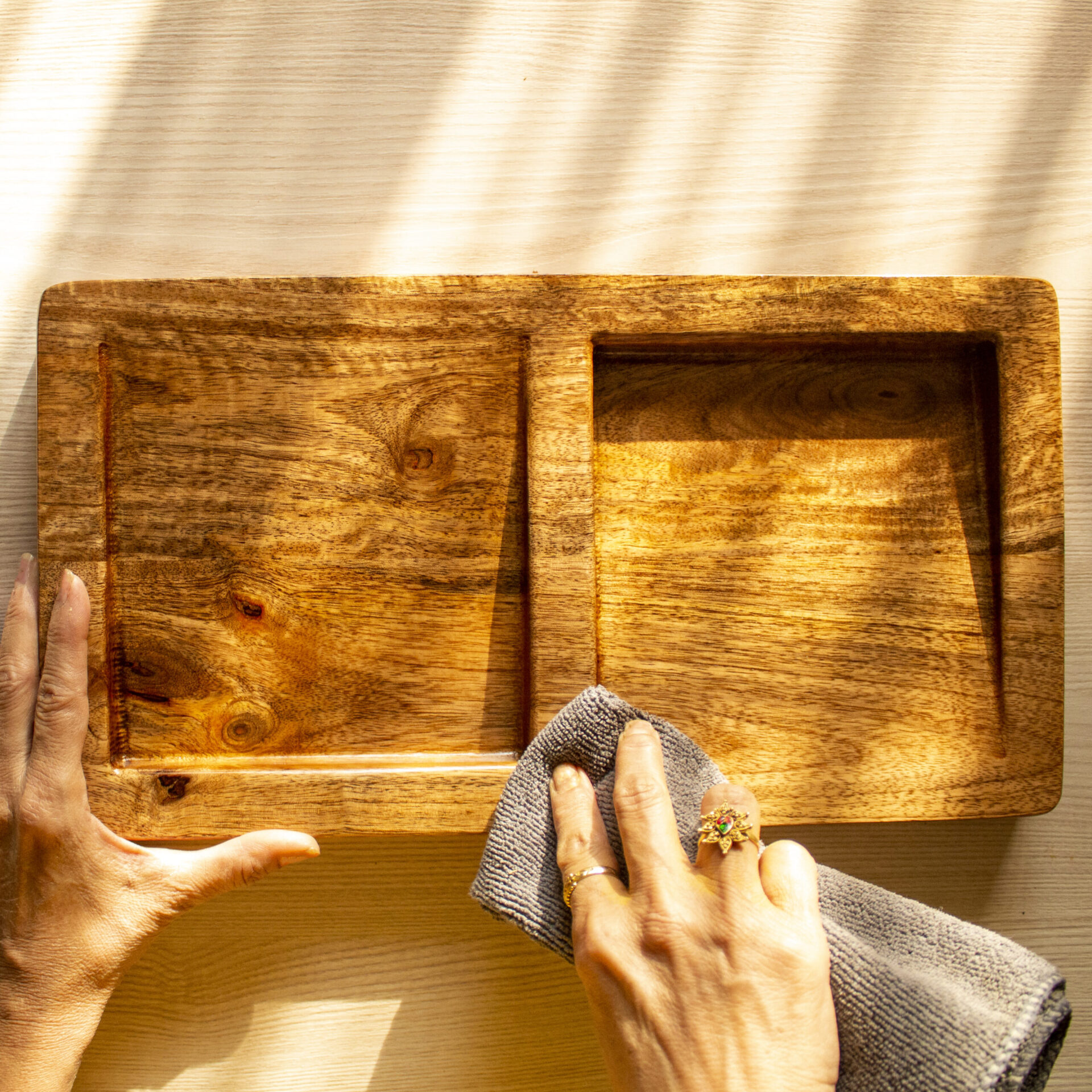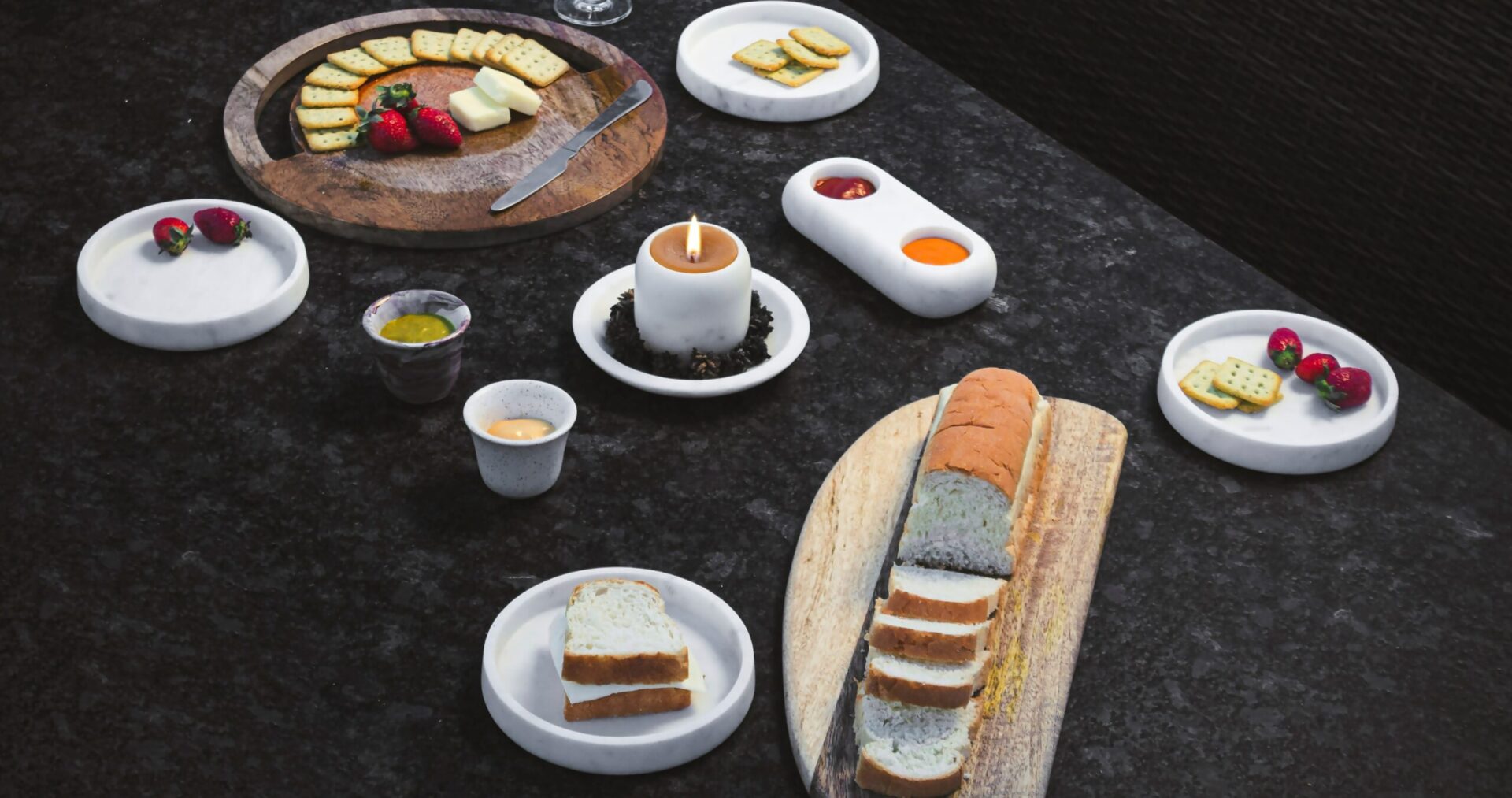
- Always clean your wooden chopping board by hand. Wood boards and other wood items (such as salad bowls and spoons) should never be put in the dishwasher or submerged in water since they will distort and/or crack.
- If you seem unable to cleanse your board straight away after preparing meals, set it on your countertop until you can. You may not even need to wash it in some cases. Simply brush away the crumbs or wipe the table clean with a moist cloth or paper towel if you’ve only sliced bread.
- Lightly rinse the board with a sponge and warm, soapy water. It’s crucial to wash both sides of the board (even if you just chopped on one side) to avoid the board from drying unevenly and warping.
- After rinsing the board, thoroughly dry it with a clean dish towel or paper towel. Allow it to air-dry entirely before storing it, standing it straight on your counter to avoid any remaining water from accumulating.
- Massage your cutting board with mineral oil on a regular basis (once a month/2 months) if it starts to seem worn or isn’t quite as sleek as you’d want. Food-based oils, such as vegetable or olive oil, should not be used because they can go rancid.
- Wooden utensils and chopping boards will be stained by highly pigmented foods like tomato sauce or berries. If they’re discolored, they’re still safe to use, and the spots will dissipate over time.
- Strong fragrances, such as mustard or oil, can soak odors from woodenware and convey them to other meals. Rub the wooden surface with the cut side of a split lemon or a paste made of baking soda and water to remove the odor. This will assist in removing the stink. To avoid flavor transfer, keep a separate cutting board and/or tool for more delicious dishes if this is a major issue.
Material - Technique - Crafter

Wood Carving is a form of woodworking by means of a cutting tool (knife) in one hand or a chisel by two hands or with one hand on a chisel and one hand on a mallet, resulting in a wooden figure or handicraft, or in the sculptural ornamentation of a wooden object. It therefore forms an important hidden element in the art history of many cultures.
Rajasthan is not only known for its desert but wood work also. The existence of jungles in some parts of Rajasthan like Jaipur, Banswara, Kota, and Udaipur have opened plenty of opportunities.
The desert may not produce too much wood, but what there is – along with wood imported from other parts of India – is beautifully worked by local craftsmen into excellent statues, furniture and other objets d’art. Amongst the most popular expressions of Rajasthan’s woodwork are its furniture – the exquisitely carved furniture of Barmer; the brightly-painted screens and doors of Kishangarh; latticework, wood inlaid with brass; lacquered wood and more.
All our wooden-ware accessories are food-grade safe. The polish done on these wooden utensils are food-grade safe certified by the FSSAI.

